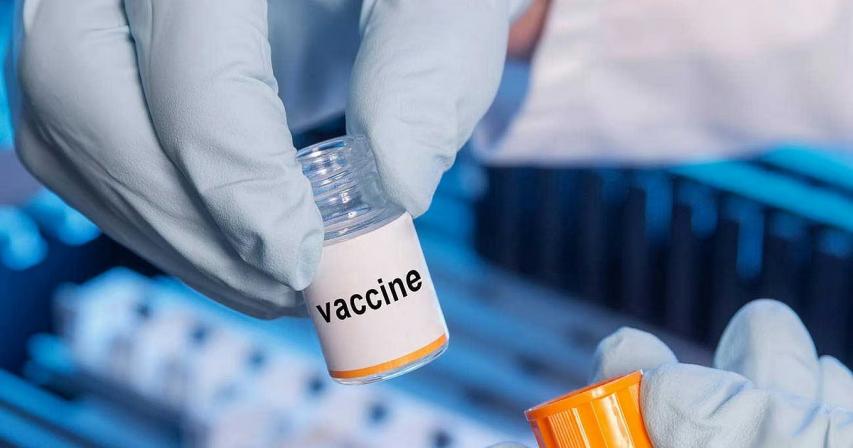UAE: HPV vaccine prevents cervical cancer, doctors tell parents as 90% target announced

Based on experts, parents are more likely to vaccinate their children against human papillomavirus (HPV) when the vaccine is marketed as a cancer preventative drug rather than protection against a sexually transmitted infection (STI).
Immunization and cervical cancer screening is back into focus as the Ministry of Health and Prevention (MoHAP) recently rolled out a detailed national strategy to fight HPV-related diseases.
This plan aims to routinely vaccinate 90% of girls below the age of 15 by 2030 and implement routine cervical cancer screening for women from the age of 25.
Factors influencing vaccine uptake
Focus Group Participants under the age of 30 in Dubai, UAE along with healthcare professionals, parents, and young adults were brought together in order to study how public perception, education, and cultural factors affect vaccine uptake.
“HPV vaccination rates can be increased by changing the way the vaccine is portrayed,” says Dr Moustafa Aldaly, Consultant in Medical Oncology at International Modern Hospital, Dubai.
'Parents are more inclined to vaccinate their children if the HPV vaccine is framed as a tool for cancer prevention rather than just a vaccine for sexually transmitted diseases,” he stated. “The uptake can also be improved significantly through school-based vaccination programs, sponsorship by pediatricians, and community education initiatives that present the vaccine as a normal component of adolescent health care.”'
'Doctors highlighted the importance of health care providers during routine check-ups and said it is crucial for them to bring up the topic because many parents do not understand the broader advantages of the vaccine aside from it being an STI vaccine.'
“Social media, public health campaigns, and collaborations with public figures can help shift the narrative and motivate women to take care of their health,” Dr Aldaly noted.
Practical solutions like adding reminders to electronic medical records, providing resources in different languages, and working with local community groups, can help increase the acceptance of cervical screening and HPV vaccinations,' he noted.
Along with this, Dr Shiva Harishnan, Specialist in Obstetrics and Gynaecology at Medcare Women and Children Hospital, emphasized the importance of receiving vaccinations at a younger age.
“It is important to motivate parents to vaccinate their daughters against HPV before the age of 15, as the vaccine is administered most effectively when prior exposure has not been attempted,” she informed us.
“A number of people do not understand HPV’s association with cancer, or they misinterpret the safety and purpose of the vaccine. The other barrier is cultural sensitivities. Some cultures consider HPV vaccination to be directly associated with sexual intercourse and may reject it for ethical or religious reasons. Another important barrier is the availability of the vaccines and the affordability (in other countries).”
Public readiness to receive the cervical cancer vaccine.
For 21-Year Old Iranian Expat Hasti Motevasel, having already received the vaccine, the campaign resonates with her.
“Many of my close relatives were affected by the complications of cervical cancer, primarily because they lacked the basic knowledge about the disease or did not get screened early in their lives. I think this initiative is really important because it brings early awareness amongst young girls, and also because cervical cancer is more common than people think,” she stated.
“I would have considered taking it if I hadn't already. It's an easy step to mitigate something serious, and I want to minimize risks for myself in the future. I also promote these topics to my family and friends. I wish to point out the efforts being made in the UAE to protect women’s health with the HPV vaccine, and protecting women from diseases such as cervical cancer.”
“I consider the cervical cancer vaccine a necessity, especially for the younger generation,” said Bhavya Rao, an Indian national living in Dubai and a mother of two children.
“My daughter is currently seven years old, but once she gets older I will make sure she gets the HPV vaccine. Personally, I never had this kind of knowledge. This is the first chance we are doing something smarter for our children,” she added.
These excerpts directly express the ideas of an abstract and show their mother’s podcast told their daughters; “What the UAE is doing by offering this vaccine and educating people about it is commendable. This reflects the seriousness and concern the country has towards women’s health and the future. However, I feel that it is not just about the UAE alone — families, educational institutions, and societies have a part to play too. With active participation, the possibility of mitigating risks and preventing something entirely avoidable is heightened. For me, this is an easy, but impactful means of safeguarding the cradle and ensuring our daughters have a greater quality of life.”






Comments